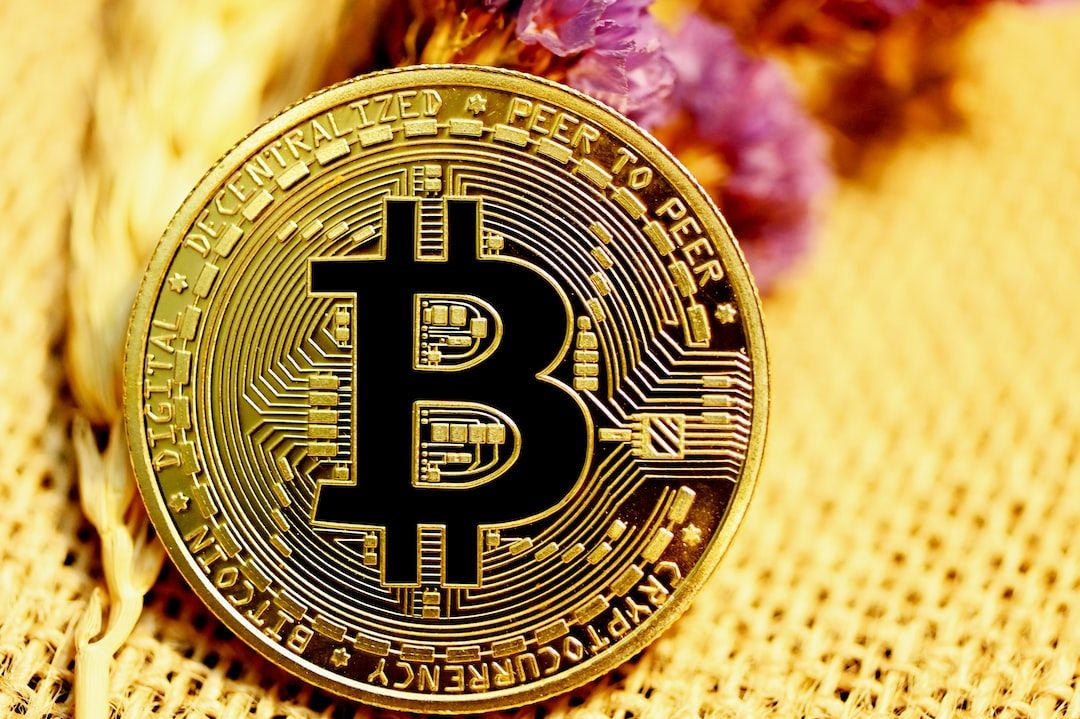
Bitcoin's Rise in a Falling Inflation World
A Tale of Two Markets

Introduction: The Growing Popularity of Bitcoin
Bitcoin, the world's first decentralized digital currency, was created in 2009 by an unknown person or group using the name Satoshi Nakamoto.
Since then, Bitcoin has grown in popularity and adoption, with more and more people investing in it as a store of value and a means of payment. In recent years, Bitcoin has experienced a surge in popularity, with its price reaching all-time highs and more institutional investors entering the market.
Understanding Inflation and Its Impact on Markets
Inflation is the rate at which the general level of prices for goods and services is rising, and, as a result, the purchasing power of currency is falling.
Inflation can have a significant impact on markets and investments, as it affects the value of assets and the returns on investments.
Inflation can also lead to higher interest rates, which can impact borrowing costs and economic growth.
Bitcoin's Performance in a Falling Inflation Environment
Bitcoin has shown to perform well in times of falling inflation, as it is not subject to the same inflationary pressures as traditional currencies.
In fact, Bitcoin's supply is limited to 21 million coins, which means that it cannot be inflated like traditional currencies. This makes Bitcoin an attractive investment option for those looking to hedge against inflation.
The Role of Central Banks in Controlling Inflation
Central banks play a crucial role in controlling inflation by adjusting interest rates and implementing monetary policies.
However, there are limitations to central bank policies, as they can only control inflation to a certain extent. Inflation can also be influenced by external factors such as global economic conditions and geopolitical events.
The Benefits of Bitcoin as a Hedge Against Inflation
Bitcoin offers several advantages as a hedge against inflation. Firstly, Bitcoin's supply is limited, which means that it cannot be inflated like traditional currencies.
Secondly, Bitcoin is decentralized, which means that it is not subject to the same government and central bank policies that can impact traditional currencies. Finally, Bitcoin is highly liquid, which means that it can be easily bought and sold, making it a convenient investment option.
The Impact of Global Economic Uncertainty on Bitcoin's Rise
Global economic uncertainty has contributed to Bitcoin's rise, as investors look for alternative investment options in times of uncertainty.
Bitcoin's decentralized nature and limited supply make it an attractive investment option for those looking to hedge against economic uncertainty and market volatility.
The Rise of Institutional Investors in the Bitcoin Market
In recent years, there has been a trend of institutional investors entering the Bitcoin market.
This has contributed to Bitcoin's rise in popularity and adoption, as institutional investors bring with them significant capital and expertise.
The entry of institutional investors into the Bitcoin market is also a sign of the growing mainstream acceptance of Bitcoin as a legitimate investment option.
The Future of Bitcoin in a Post-Pandemic World
The COVID-19 pandemic has had a significant impact on the global economy and financial markets, and Bitcoin has not been immune to these effects.
However, Bitcoin has shown resilience in the face of economic uncertainty and market volatility, and there is potential for it to continue to rise in a post-pandemic world.
As more people turn to digital currencies and alternative investment options, Bitcoin's popularity and adoption are likely to continue to grow.
The Risks and Challenges of Investing in Bitcoin
Investing in Bitcoin comes with several risks and challenges, including price volatility, regulatory uncertainty, and security risks. Bitcoin's price can be highly volatile, which means that investors need to be prepared for significant fluctuations in value.
Regulatory uncertainty also poses a risk to Bitcoin, as governments around the world grapple with how to regulate digital currencies. Finally, security risks such as hacking and theft are a concern for investors, as Bitcoin is stored digitally and can be vulnerable to cyber attacks.
Conclusion
Bitcoin has shown to be a viable investment option for those looking to hedge against inflation and economic uncertainty. Its decentralized nature and limited supply make it an attractive investment option, and its performance in times of falling inflation has been impressive.
However, investing in Bitcoin comes with risks and challenges, and investors need to be prepared for significant price volatility and regulatory uncertainty.
Overall, Bitcoin's potential as a safe haven asset in a volatile market is significant, and its popularity and adoption are likely to continue to grow in the coming years.
Appreciate the creator